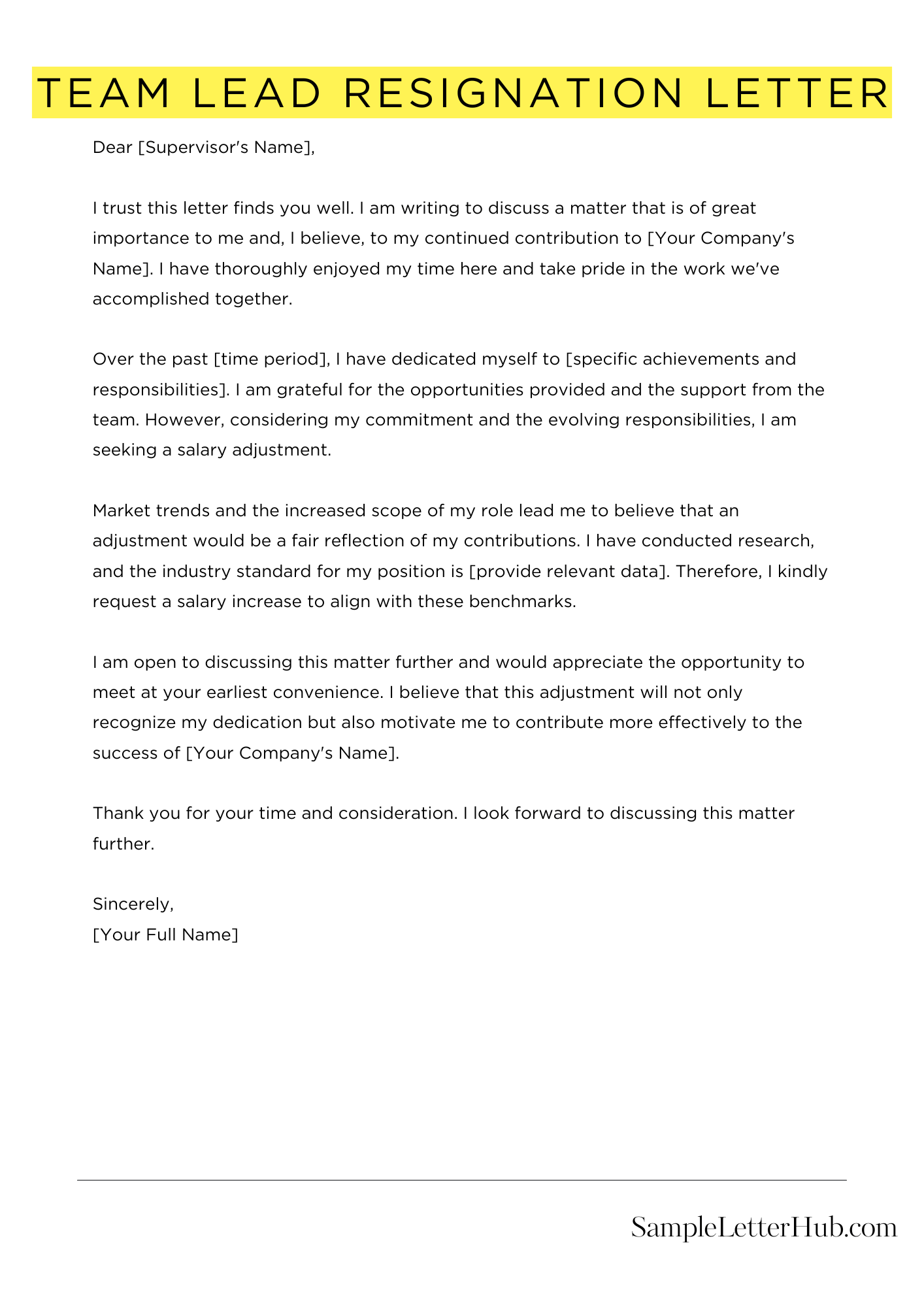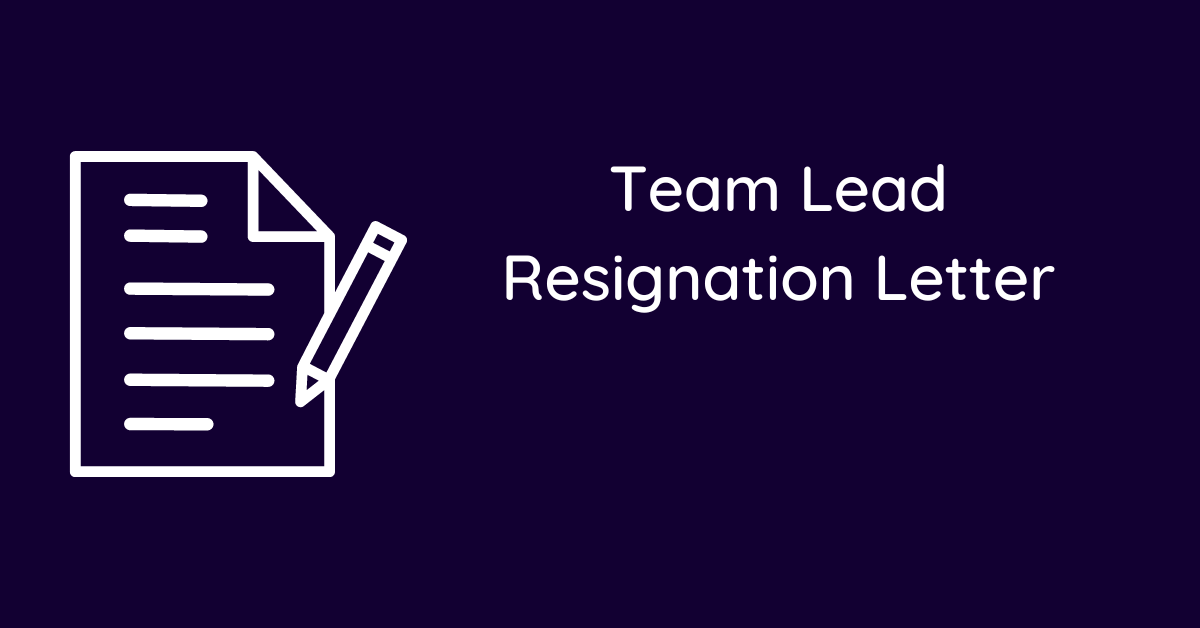Hey there, team leaders! If you’re thinking about moving on from your current role, you’ll need to write a clear and professional resignation letter. Don’t worry, we’ve got you covered. We’ll share an example of a team lead resignation letter that you can use as inspiration.
When it comes to writing your resignation letter, be polite and humble. Remember, you want to leave a good impression. Explain your decision to leave in a clear and concise way. You don’t need to go into too much detail, but you should give your employer a general idea of your reasons for leaving.
Below, we’ve included a template/example team lead resignation letter that you can use as a starting point. Feel free to adapt it to your own situation. Just remember to be professional, polite, and clear in your communication.
Team Lead Resignation Letter
Dear Hiring Manager,
Please accept this letter as formal notification that I will be resigning from my position as Team Lead at [Company Name], effective [last date of employment].
I have enjoyed my time at [Company Name] and am grateful for the opportunities I have been given. I have learned and grown both professionally and personally, and I appreciate the support and guidance I have received from my colleagues and superiors.
I wish [Company Name] all the best in the future.
Sincerely,
[Your Signature]
Short Team Lead Resignation Letter Sample
Please accept this letter as formal notification that I am resigning from my position as Team Lead at [Company Name]. My last day of employment will be [Your Last Day]. Thank you for the opportunity to grow and learn during my time here. I wish you and the company continued success. I am happy to assist in the transition process to ensure a smooth handover of my responsibilities.
I wish you all the best with your team lead resignation letter.
When it’s time to say farewell, expressing your gratitude and best wishes can make the transition smoother:

How to Write a Team Lead Resignation Letter
1. Start with a Formal Introduction
Begin your letter with a formal salutation, such as “Dear [Manager’s Name].” Clearly state your intention to resign from your position as Team Lead, effective [date].
2. Express Gratitude and Appreciation
Take a moment to express your gratitude for the opportunity to lead the team. Highlight the positive experiences and accomplishments you’ve had during your tenure. This shows that you value the time you’ve spent with the company.
3. State Your Reasons for Resigning
Be brief and professional when stating your reasons for leaving. Avoid going into excessive detail or making negative comments. Instead, focus on the positive aspects of your new opportunity.
4. Offer Assistance with the Transition
Let your manager know that you’re willing to help with the transition process. Offer to train your replacement or provide any necessary documentation. This shows that you’re committed to leaving the team in a good position.
5. End with a Positive Note
Close your letter with a positive and professional tone. Wish your team and the company all the best in the future. You can also express your willingness to stay connected or provide support in the future.
Team Lead Resignation Letter: 6 Frequently Asked Questions
1. What should I include in my resignation letter?
Your resignation letter should include your name, position, the date you’re resigning, and your last day of employment. It should also express your gratitude for the opportunity to work with the team and the company.
2. How should I format my resignation letter?
Your resignation letter should be single-spaced and written in a professional font. It should be left-aligned and have one-inch margins on all sides.
3. When should I submit my resignation letter?
It’s best to submit your resignation letter two weeks before your last day of employment. This will give your employer time to find a replacement.
4. What if I’m not sure when my last day of employment will be?
If you’re not sure when your last day of employment will be, you can write “two weeks from the date of this letter” in your resignation letter.
5. Do I need to give a reason for resigning?
You are not required to give a reason for resigning, but it’s a good idea to do so if you’re comfortable. This will help your employer understand why you’re leaving and may make it easier for them to find a replacement.
6. What should I do after I submit my resignation letter?
After you submit your resignation letter, you should meet with your manager to discuss your departure. You should also work with your team to ensure a smooth transition.
Before making the decision to resign from your job, it’s essential to consider the legal aspects:
Understanding your emotions after quitting your job is important. Explore why you might be feeling sad:
Related
- Resignation letter sample
- Forced resignation letter
- Resignation letter due to going abroad
- Resignation letter due to marriage
- Resignation letter due to other opportunity
- Resignation letter due to mistake

